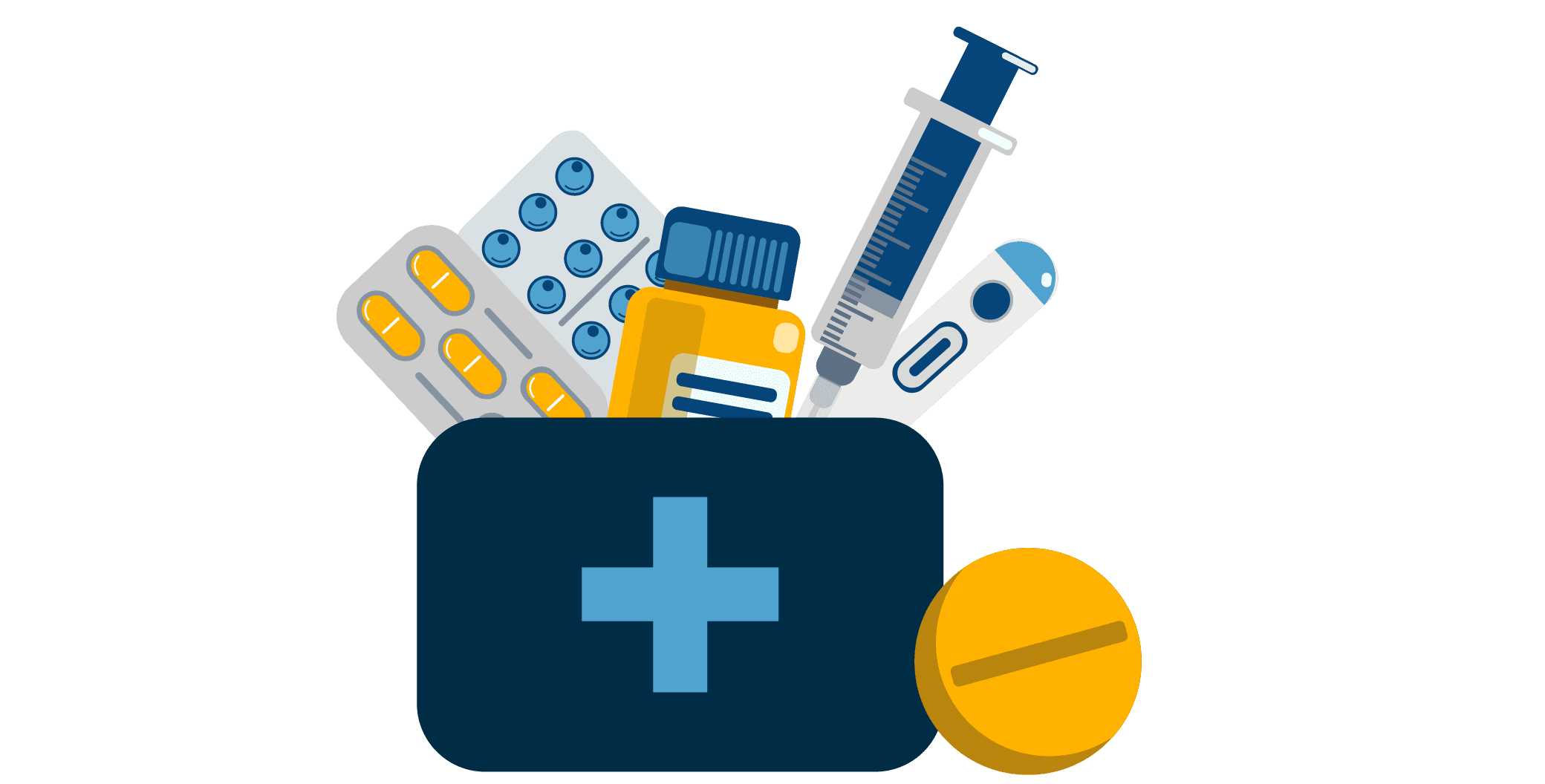Pharmaceutical advertising regulations in Europe: Responsible Persons

15 December 2021
BlueReg
The promotion of medicinal products is governed by advertising laws and regulations in the European Union (EU). In particular, the Directive 2001/83/EC ‘of the European parliament and of the Council of 6 November 2001 on the Community code relating to medicinal products for human use’ establishes the European regulatory framework with articles dedicated to promotional activities and advertising of medicinal products.
Of course, promotional activities are a key part of biotech and large pharma companies’ business strategy when marketing authorizations have been delivered and as they are now looking towards their new drugs launches in Europe. However, such promotion must be compliant with pharmaceutical advertising laws imposed by European and/or national authorities.
What is the regulatory context for pharmaceutical advertising in Europe?
According to the Directive 2001/83/EC (article 97), the advertising of medicinal products shall be subject to effective and adequate monitoring. In article 98, the directive states that the Marketing Authorization Holder (MAH) shall establish a scientific service in charge of the information about medicinal products and ensure that the decisions taken by the authorities or bodies responsible for monitoring advertising of medicinal products are complied with. Nevertheless, the Directive does not give precise rules regarding the control of pharmaceutical advertising, leaving the Member States (MS) a certain degree of freedom in the implementation of such monitoring.
Each country has transposed the European Directive in domestic laws and regulatory guidelines with local adaptations and all Member States have therefore adopted further specific measures concerning the advertising of medicinal products. Thus, depending on the MS, pharmaceutical promotion can be monitored & controlled by the government, by a national competent authority or not, this approach is called “self-regulation”. Within the framework of self-regulation, monitoring, and control activities, in the absence of identified national competent authorities can be delegated, for example, to national associations of pharmaceutical industries, multi-stakeholder groups, or the company responsible for the advertising itself. Such associations and organizations develop their own codes and can assess & approve advertisements.
To comply with principles of good promotion practices, especially in a context of self-regulation by the company itself, we can rely on different guides/codes. Published by the World Health Organization (WHO) in 1988, the “Ethical Criteria for Medicinal Drug Promotion” provided a framework for developing guides and measures to ensure ethical promotional practices.
The International Federation of Pharmaceutical Manufacturers and Associations (IFPMA) regularly issues a Code of Practice which establishes a global guidance on pharmaceutical promotion. Section 12.3 of the IFPMA Code of Practice 2019 states that a designated company employee with sufficient knowledge and appropriate qualifications should be responsible for approving all promotional communications (adequately qualified scientific personnel).
In parallel, the European Federation of Pharmaceutical Industries and Associations (EFPIA) also regularly publishes a Code of Practice which constitutes the collection of ethical rules for promotion of medicinal products to HealthCare Professionals (HCPs) in the EU. Section 20.01. of the EFPIA Code of Practice 2019 states that each member company must establish a scientific service in charge of medicinal products information and specifies that this scientific service must include a medical doctor or a pharmacist who will be responsible for approving any promotional material before release.
In this regulatory context heavily dependent of MS, we present a ‘Focus’ on the qualification, duties & appointment of the person responsible for promotion of medicinal products in the following 5 European countries: France, Germany, Spain, Italy, and the United Kingdom (UK).
What type of medicinal products are concerned by those regulations?

The European Directive 2001/83 on the Community code relating to medicinal products for human use addresses all types of pharmaceuticals including prescription drugs and non-prescription medicines, vaccines, blood & blood components, gene therapy products and advanced therapies. The directive does not stipulate a clear selection criterion based on therapeutic or economic value between different types of medicinal products, thus its scope is the same for novel high value biological & innovative medicines as well as for traditional pharmaceuticals.
What are the specific requirements per countries for pharmaceutical companies?
France

In France, pharmaceutical promotion is defined at a national level by laws and regulations, in particular the French Public Health Code (Code de la Santé Publique – CSP).
Article L.5124-2 of the French Public Health Code specifies that "any company that includes at least one pharmaceutical establishment must be owned by a pharmacist or a company in which a pharmacist participates to the management or general direction [...]". These mentioned pharmacists are called "Responsible Pharmacists" or “Chief Pharmaceutical Officer”.
In order to be appointed, the Responsible Pharmacist has to hold a diploma of doctor in pharmacy and to meet the practice conditions defined by the CSP (articles R.5124-16 to R.5124-33): he/she must justify of a certain professional experience, notably in batch monitoring activities associated with pharmacovigilance activities (from 6 months to 2 years, articles R.5124-16 and R.5124-17). The Responsible Pharmacist must be registered within the French Order of Pharmacists and to have his/her diploma registered for a single company (article R5124-20 of the CSP). The company must notify the general manager of the French Health Authority (ANSM) of the appointment of a new Responsible Pharmacist within one month (article R.5124-35 of the CSP).
The Responsible Pharmacist takes on many tasks, as mentioned in Article R.5124-36 of the CSP, since he/she "organizes and supervises all pharmaceutical operations of the company or organization, and in particular manufacturing, advertising, information [...] as well as the corresponding storage operations". The Responsible Pharmacist is thus responsible for the promotional nature of all information relating to medicinal products. Indeed, according to Article R.4235-69 of the French Public Health Code, "the Responsible Pharmacist is required to ensure the accuracy of scientific, medical, and pharmaceutical information and advertising, as well as the fairness of their use. He shall ensure that advertising of medicinal products is objective and not misleading". He is the guarantor of the ethics of the information; thus he/she must notably refrain discrediting a colleague or a competitor (particular attention should be paid to comparative advertising).
Article R.5124-36 of the CSP also notably stipulates that the Responsible Pharmacist “signs, after having taken notice of the file, [...] any application related to the activities he/she organizes and supervises". Therefore, regarding advertising, which is considered as a pharmaceutical operation, the Responsible Pharmacist must sign promotional materials as well as visa applications files to the French Health Authority (ANSM), as his own responsibility is engaged.
Moreover, in accordance with the Promotional Information Charter dated 2014 and its current requirements, the Responsible Pharmacist is responsible for the content of promotional materials as well as for the associated medical sales representative’s speech. He/she shall maintain lists of materials that can and should be delivered and shall ensure that the person carrying out an information activity by canvassing or prospecting has the required knowledge for the exercise of his/her profession and that he/she receives regular continuous training aimed at updating his/her knowledge.
Finally, the Responsible Pharmacist is legally liable (article L.5422 of the CSP).
Disciplinary sanctions may apply if he/she fails to fulfill his/her duties (this can be from a warning to permanent withdrawal of authorization to practice and loss of their diploma). The Responsible Pharmacist also incurs civil and criminal liability. For example, to disseminate a promotional document for a medicinal product that has not been granted a marketing authorization, or to disseminate a promotional document for a medicinal product without a visa delivered by ANSM, may be punished by imprisonment and financial penalties (articles L.5421-2 and L.5422-6 of the CSP).
Germany

In Germany, pharmaceutical promotion is defined and governed by national laws, as in particular the Law on Advertising in the Health Sector (Heilmittelwerbegesetz – HWG), the Law on the Trade in Medicinal Products (Arzneimittelgesetz – AMG) and the Act against Unfair Competition (Gesetz gegen den unlauteren Wettbewerb – UWG) which contains more general advertising rules. But the government does not manage the control of medicinal product advertising. Therefore, there is no approval or license required and no obligation to provide competent authorities with advertising material. The German system is rather based on a prior self-assessment by the company responsible for the advertising.
According to the §74a (AMG), any person who, as a pharmaceutical company, markets medicinal products, shall commission a person, the information officer ‘Informationsbeauftragter’ (IO), with the expertise and reliability required to take the responsibility for providing scientific information about medicinal product. In particular, the IO is responsible for ensuring that labeling, package insert, specialist information and advertising are not misleading (§8 (1) No. 2 AMG) and comply with the Marketing Authorisation (MA).
The IO can exercise another position at the same time within the company (e.g., phase plan officer ‘Stufenplanbeauftragter’ §74a) and can be attached to various specialist departments of the company, except marketing. He/she is responsible, and personally liable, for the release of packaging and promotional materials for medicinal products. It is highly recommended following the review cycle that the IB approves the material (possibly in a “certification step”). But there is no explicit legal requirement for IB to sign these materials.
In Germany, pharmaceutical companies are allowed to commission an external IO. In such instances, it is recommended for the company to enter into a third-party agreement with this personally liable external person. When the external IB is notified, the authorities could ask to see this contract.
Thus, in Germany, it is also allowed for an IO to be appointed by several companies.
Since a company engaged in advertising medicinal products is liable for the conduct and activities of its employees, although there is no “sign-off” obligation of promotional campaigns, recommendation for the company is to set up Standard Operating Procedures (which can include a signature/digital signature etc.) to control advertising materials prior to release. This is in order to comply with the legal requirements (particularly in the context of interaction with healthcare professionals which are subject to legal risk, including criminal liability).
NB
The pharmaceutical company shall notify the competent authority (CA) of the appointment of IO and of any changes in advance (6 to 1 month before). In the event of an unforeseen change of the IO, notification must be made immediately.
Documentation to be provided for notifying the IO depends on the CA but usually contains at least an up-to-date CV, a proof of eligibility and a current police clearance certificate grade 0 (≤ 6 months old).
Indeed, as stipulated in the section §74a (AMG), the pharmaceutical company must ensure that the appointed IB has the “expertise and reliability required”. It must be proven that IO has the sufficient specialist knowledge. Usually, the minimum proof of qualification is a certificate of an examination passed after completing a university degree in pharmacy, biology, or medicine. However, as this is not a prerequisite – no precise legal requirement – recommendation is to consult the authorities. A very good level of written and spoken German and English is required. In addition, good awareness of national case law is recommended.
A precise timeline is not stipulated but usually the notification should be completed in less than 1 month. The clearance certificate is a critical document as it takes 2/3 weeks to be issued and sent to the CA by the ‘Einwohnermeldeamt’ (Registration Office of the city where the IO lives).
Spain

The Spanish Medicinal Products and Medical Devices Agency, ‘Agencia Española de Medicamentos y Productos Sanitarios’ (AEMPS) is the main body responsible for all technical and quality aspects of medical products for Spain. Royal Decree 1416/1994 establishes the general framework for regulation of promotion of medicinal products and medical devices. In addition, some of the 17 autonomous regions which are competent for the implementation of rules on advertising of medicinal products have adopted guidelines reflecting the position of the regional authorities (e.g., in the regions of Madrid and Catalunya). In addition, Farmaindustria, the National Association of the Pharmaceutical Industry established in Spain issues “Good Practices Code for pharmaceutical industry”. This code regulates promotion of medicines towards HCPs and patient associations. The latest code issued by Farmaindustria is dated January 2021.
Article 20 of the Royal Decree 1416/1994 and section 9 of the Code of Farmaindustria, state that the marketing authorization holder must have a scientific service in charge of the management of the information related to the medicinal products put on the market by the company.
The company or its local representative must have a scientific service comprising a physician or a pharmacist responsible for:
- Information on their medicinal products
- Approval of promotional material before distribution
- Ensuring the notification of the promotional materials on medicinal product to regional health authority and keeping complete records, making them available to the authority for a minimum period of 5 years
- Ensuring that medical sales representatives receive adequate training
- Ensuring submission of an annual report on promotional activities to regional health authority, including promotional materials distributed, sponsorship and participation in promotional scientific meetings and events
The person responsible for scientific service must know Spanish and is responsible for all aspects of the scientific service in the view of the Health Authority (HA). Scientific Service Responsible person is to be notified to the HA; no approval is required. Scientific Service file is not regulated by law and it is discretional for the company to decide what to include in the notification.
If the MAH is not based in Spain but is going to promote a medicine in the Territory, the MAH shall notify all 17 regions of Spain how and who is going to take the responsibilities of the Scientific Service, and they must also make notifications of all promotional activities to all 17 regions. Whereas if the MAH has a local representative/address in Spain notification of promotional activities to the HA in the region they are located are required.
NB
In Spain, in addition to the national legislation, each autonomous region adopts guidelines that pharmaceutical companies must comply with, depending on their localization.
Promotional materials dedicated to HCPs for prescription only medicines and those dedicated to general public for over-the counter (OTC) medicines are handled differently.
Advertising directed to HCPs qualified to prescribe or dispense medicinal products does not need to be approved in advance by an authority. However, companies must send a copy of the advertisement to the regional health authority of the region where the company is located. It is made through an electronic notification and includes an application form detailing promotional material information (date of first diffusion, nature, mean of distribution, addressees), copy of the final material in pdf and a signed report from the Scientific Service certifying that the material is in line with the regulation. The Ministry of Health may, in exceptional circumstances, make the advertising of a specific product subject to prior approval. Such decision must be duly justified and shall affect all products having the same composition.
For OTC, Personal Healthcare Association (ANEFP) has released the “Spanish code of good practices for the promotion and advertising of non-prescription medicinal products”. ANEFP is a self-regulatory association who will review the promotional materials of its members and put the “sello ANEFP” on the approved materials.
Italy

In Italy, the national health agency is AIFA, ‘Agenzia Italiana del Farmaco’, acting under the direction and vigilance of the Ministry of Health (MoH) and in coordination with the Ministry of Economy. National regulation is the Italian Legislative Decree 219/2006 “Code of Medicines” implementing directive 2001/83/EC of the EU Parliament. For promotion to consumers, companies need to comply with the provisions set forth in the Legislative Decree 206/2005 “Consumer Code”.
Farmindustria is the Italian pharmaceutical companies’ trade association and Farmindustria “code of professional conduct”, is the national self-regulatory code applicable in Italy. This code sets out to regulate relations not only between companies but also their relations with the scientific and healthcare sectors.
Article 16 of Decree 219/2006 states that any company in possession of a marketing authorization in Italy shall appoint a Scientific Responsible Person ‘Responsabile del Servizio Scientifico’ (RSS) in charge of information on medicines put on the market. The RSS shall have a degree in medicine, pharmacy, chemistry or pharmaceutical technology. Registration of the scientific responsible person is made through AIFA portal, using the Font End forms. For registration of a new RSS, the following information are to be completed on the electronic form:
- Company name
- Name & surname
- Tax code
- Type of diploma: to be selected from a list given by the system
- Email & phone number
- Period of activity
According to article 126 of “Code of Medicines”, pharmaceutical companies must have a scientific service headed by a person who ensures that the promotional materials are legally compliant. This scientific service is in charge of the information about the medicinal products that companies put on the market and must be independent of the marketing department.
The scientific service shall:
- Ensure that promotional materials comply with local regulations
- Ensure that the Sales Representatives are adequately trained on performing their activity in compliance with the applicable legislation in Italian Territory
- Provide AIFA with the information and assistance if necessary
- Ensure that the decisions taken by the MoH and AIFA under the Medicines Code are immediately and fully complied with.
NB
The pharmaceutical company shall notify through AIFA electronic portal any change of RSS and any change of the details given in the list above for a registered RSS.
In Italy, promotional materials dedicated to HCPs for prescription only medicines and the ones dedicated to general public for over-the counter (OTC) medicines are handled differently.
Promotional materials dedicated to HCPs are to be submitted to AIFA using the AIFA electronic portal. Materials can be used after 10 days after submission in the absence of objection from the Authority.
For OTC, article 118 of Code of Medicines states that promotional materials dedicated to general public are to be approved by the Italian Ministry of Health before they can be used. Following submission of the application for each single advert, it is deemed approved after 45 days if no formal approval is received from MoH.
United Kingdom (UK)

In the UK, the Medicines & Healthcare products Regulatory Agency (MHRA) regulates advertising of medicinal products. The Blue Guide issued by MHRA on “Advertising and Promotion of Medicines in the UK”, third edition, third revision dated November 2020 states the primary responsibility for the content and dissemination of all advertising and promotion of a medicine lies with the license holder.
Depending on the regulatory status of the concerned medicinal product and membership of the company, different codes of practices are applicable in the UK. Member companies must follow relevant codes:
- Prescription only medicine: Code of Practice of the Association of the British Pharmaceutical Industry (ABPI). The Prescription Medicines Code of Practice Authority (PMCPA) is the self-regulatory body which administers the ABPI code. The 2021 APBI Code was approved by ABPI members at a special General Meeting on Tuesday 12 January 2021. It will come into operation on 1 July 2021.
- OTC medicine: Proprietary Association of Great Britain (PAGB) with PAGB Medicines Advertising Codes. PAGB, the consumer healthcare association, represents the manufacturers of branded OTC medicines, self-care medical devices and food supplements in the UK.
Blue Guide mentioned above states that a company will normally delegate final approval of all promotional materials to qualified signatories. Although it is not a legal obligation, the appointment of qualified signatories to certify advertising material is a requirement of both the ABPI Code of Practice and of the PAGB Medicines Advertising Codes. Companies are also asked to inform the MHRA of such appointments with names and qualifications of signatories and of any subsequent changes (by email to signatories.advertising@mhra.gov.uk).
For prescription only medicines, Clause 14 of ABPI Code of Practice states that the material is to be certified by a registered medical practitioner or a pharmacist registered in the UK or alternatively, in the case of a product for dental use only, a UK registered dentist. The person certifying on behalf of the company must not be the person responsible for developing the material. In deciding whether a person can be a nominated signatory, account should be taken of product knowledge, relevant experience both within and beyond the industry, length of service and seniority. In addition, signatories must have an up to date, detailed knowledge of the Code.
There is no requirement in the Code relating to the actual qualifications of medical signatories. The advice usually given is that the proposed medical signatory should be capable of being registered in the UK without the need for additional tests of medical/clinical knowledge.
In addition to the declaration to MHRA, the names of those nominated as signatories, together with their qualifications, shall be notified in advance to the Prescription Medicines Code of Practice Authority (PMCPA). The names and qualifications of designated alternative signatories must also be given.
Clause 16 of ABPI Code of Practice states that all relevant personnel including representatives and members of staff, concerned in any way with the preparation or approval of material or activities covered by the Code must be fully conversant with the Code and the relevant laws and regulations. Representatives must take an examination within one year of starting such employment and pass it within two years. Due to the current context with Covid-19, ABPI examination is held online. PMCPA published in December 2020 explanations about the extensions to the time allowed to pass an examination. Learning manual available on exams.abpi.org.uk. The mandatory units within the certificate are:
- Structure of the National Health Service (NHS) & Code of Practice
- Human body structure & function 1
- Human body structure & function2
- Development & use of medicines
For OTC medicines, member companies are required to notify PAGB of a signatory who is responsible for ensuring that the company’s advertising to persons qualified to prescribe or supply is produced in compliance with this Code (section 1.4.2 of PAGB Code). Companies should ensure that the details notified to PAGB are accurate and up to date. Companies may wish to notify PAGB of one or more deputy signatory or signatories. Deputy signatories should be appointed to cover holiday periods, etc. (section 1.4.3 of PAGB Code). Signatories are expected to have a good working knowledge of the PAGB Professional Code for Medicines (section 1.4.4 of PAGB Code).
NB
In the UK, promotional materials dedicated to HCPs for prescription only medicines and the ones dedicated to general public for over-the counter (OTC) medicines are handled differently.
For prescription only medicines, in specific situations, vetting of advertising materials by MHRA may be required for newly authorized product subject to additional monitoring placed on the market and for all new active substances. In addition, MHRA has committed to vet advertising when previous advertising for a product has breached the Regulations. For the other prescription medicines, there is no requirement to submit promotional materials to the authorities.
The PAGB Medicines Advertising Codes apply to advertising for all OTC medicines regardless of their route to market approval (marketing authorization or traditional herbal medicines registration). PAGB operates a pre-publication approval system for member companies: it is a condition of membership that all advertising aimed at consumers must be submitted to PAGB for screening and PAGB approval must have been given prior to its release into the public domain. PAGB organizes regular trainings about their codes for its members.
Conclusion
Despite the common basis which is in the EU Directive 2001/83/EC, promotional regulation is governed by different texts and structures in the different EU countries and in the UK. There are local specificities in each country regarding the responsible person and its roles and duties for validation of promotional material for example. Pharmaceutical companies must fulfil many local requirements to be in line with local regulations before promotional activities can be started at local level in EU countries and in the UK.
This article has outlined some key points to consider when you plan your next promotional campaign across Europe - but it's also worth checking with individual regulators before proceeding too far down any particular path. If you need help preparing a promotional campaign that complies with the regulations in all relevant jurisdictions and to get access to highly qualified skills in each EU member states, please get in touch! We'll be happy to help make sure your compliance efforts go smoothly.
Through our Promotional Material Services, BlueReg experts and our network of local partners will help you by coordinating and building the regulatory promotional strategy of your products along with the fulfilment of the local requirements for the respective launch and international congress set up ensuring promotional compliance in Europe and at a national level (EU and non-EU member states).
List of abbreviations
ABPI: Association of the British Pharmaceutical Industry
AEMPS: Agencia Española de Medicamentos y Productos Sanitarios – Spanish Agency for Medicines and Sanitary Products
AIFA: Agenzia Italiana del Farmaco – Italian Agency for Medicines
AMG: Arzneimittelgesetz – The German Law on the Trade in Medicinal Products
ANEFP: Asociación para el Autocuidado de la Salud – Spanish Personal Healthcare Association
ANSM: Agence nationale de sécurité du médicament et des produits de santé – French National Agency for the Safety of Medicines and Health Products
CA: Competent Authority
CSP: Code de la Santé Publique – French Public Health Code
EC: European Commission
EFPIA: European Federation of Pharmaceutical Industries and Associations
EU: European Union
HA: Health Authority
HCPs: HealthCare Professionals
HWG: Heilmittelwerbegesetz – German Law on Advertising in the Health Sector
IFPMA: International Federa
IO: Informationsbeauftragter - German responsible person
MA: Marketing Authorisation
MAH: Marketing Authorisation Holder
MHRA: Medicines & Healthcare products Regulatory Agency
MoH: Ministry of Health
MS: Member States
NHS: National Health Service
OTC: Over the Counter
PAGB: Proprietary Association of Great Britain
PMCPA: Prescription Medicines Code of Practice Authority
QP: Qualified Person
RSS: Responsabile del Servizio Scientifico – Italian Scientific Responsible Person
UK: United Kingdom
UWG: Gesetz gegen den unlauteren Wettbewerb – German Act against Unfair Competition
WHO: World Health Organization
Bibliography
All references have been last accessed on March 16th, 2021.
Regulatory context:
Directive 2001/83/EC of the European Parliament and of the Council of 6 November 2001 on the Community code relating to medicinal products for human use:
https://eur-lex.europa.eu/legal-content/EN/TXT/?uri=CELEX%3A02001L0083-20190726
World Health Organization. (1988). Ethical criteria for medicinal drug promotion. WHO. https://apps.who.int/iris/handle/10665/38125
IFPMA code of practice, 2019:
https://www.ifpma.org/wp-content/uploads/2018/09/IFPMA_Code_of_Practice_2019.pdf
France :
Public Health Code – Code de la Santé Publique : https://www.legifrance.gouv.fr/codes/texte_lc/LEGITEXT000006072665/
Consumer Code – Code de la consommation : https://www.legifrance.gouv.fr/codes/texte_lc/LEGITEXT000006069565/
Documents to be provided for an application for registration or modification of registration in the table in Section B of the Order of Pharmacists:
Germany:
Law on the Trade in Medicinal Products – Arzneimittelgesetz:
https://www.gesetze-im-internet.de/amg_1976/inhalts_bersicht.html
Law on Advertising in the Health Sector – Heilmittelwerbegesetz:
https://www.gesetze-im-internet.de/heilmwerbg/BJNR006049965.html
Act against Unfair Competition – Gesetz gegen den unlauteren Wettbewerb:
https://www.gesetze-im-internet.de/uwg_2004/BJNR141400004.html
Spain:
Royal Decree 1416/1994, 29 July 1994 on regulation for advertising for human medicines:
https://www.aemps.gob.es/legislacion/espana/otrosTemas/docs/publicidad/rcl_1994_2219.pdf
Farmaindustria, 2021, Code of good practices: https://www.codigofarmaindustria.org/servlet/sarfi/codigo/codigo.html
ANEFP, May 2020, Code of deontological norms for marketing and advertising of OTC medicines: http://www.anefp.org/sites/default/files/2020-10/C%C3%B3digo-normas-deontologicas-anefp-menosreme_may2020_1_1.pdf
Italy:
Legislative Decree 219/2006, 24 April 2006, Implementation of Directive 2001/83/EC (and subsequent amending directives) relating to a Community code relating to medicinal products for human use, as well as the directive 2003/94/EC: https://www.aifa.gov.it/documents/20142/0/DL_2006_219_0.pdf/
Farmindustria code, April 2021: Codice-Etico-Farmindustria-15-aprile-2021.pdf
Legislative Decree 206/2005, 6 September 2005, Consumer code: https://www.gazzettaufficiale.it/atto/serie_generale/caricaDettaglioAtto/originario?atto.dataPubblicazioneGazzetta=2005-10-08&atto.codiceRedazionale=005G0232&elenco30giorni=false
United Kingdom:
MHRA BlueGuide, November 2020, Advertising and Promotion of Medicines in the UK, Third Edition Third revision: https://assets.publishing.service.gov.uk/government/uploads/system/uploads/attachment_data/file/956846/BG_2020_Brexit_Final_version.pdf
ABPI code of practice, 2021: 240621-abpi-code-of-practice_final.pdf
PAGB Consumer Code for Medicines, 2019: https://www.pagb.co.uk/content/uploads/2018/12/PAGB-Consumer-Code-Jan-2019.pdf




